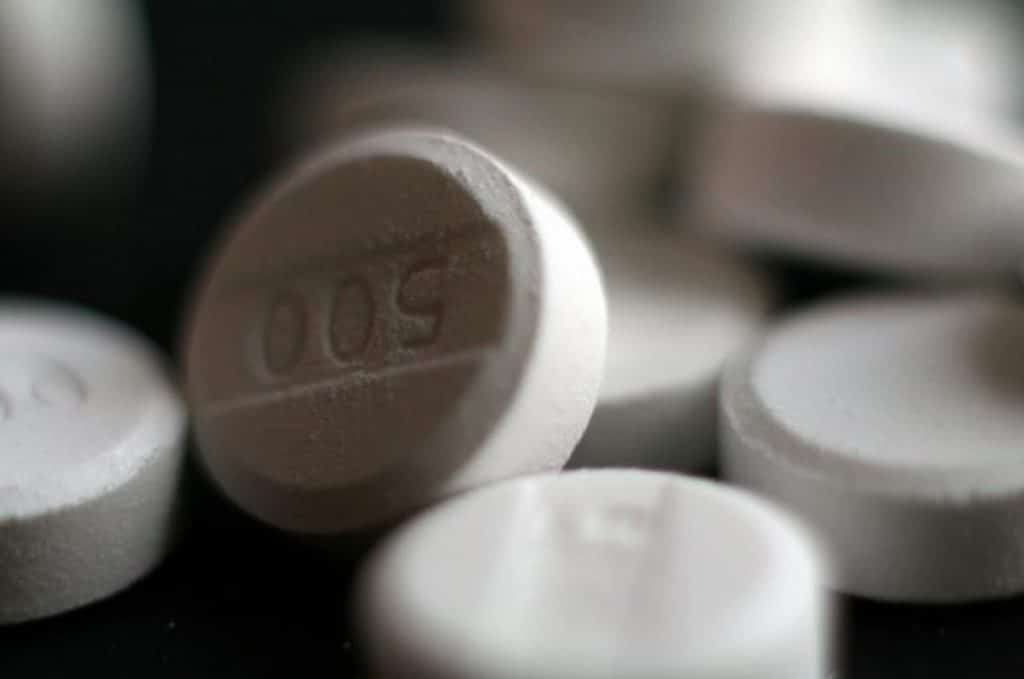A clinical study supported by the National Institutes of Health (NIH) found that the administration of paracetamol administered intravenously reduces the risk of sepsis patients suffering organ damage or developing acute respiratory distress syndrome, a serious condition that allows fluid to leak into the lungs.
The research: “Randomised phase 2b study of paracetamol for the prevention and treatment of organ dysfunction in patients with critical sepsis”, was published in JAMA .
Benefits of paracetamol in acute respiratory distress syndrome
Sepsis is the body’s uncontrolled and extreme response to an infection. Although the study did not improve mortality rates in all patients with sepsis, regardless of severity, the researchers found that acetaminophen provided the greatest benefit to patients most at risk of organ damage. With therapy, these patients required less assisted ventilation and experienced a slight, although statistically insignificant, decrease in mortality.
In sepsis, red blood cells become damaged and die at abnormally high rates, releasing so-called “free hemoglobin” into the blood. The body is overwhelmed and unable to remove excess hemoglobin, which can cause organ damage.
Previous work by Lorraine Ware, MD, professor of medicine, pulmonary and critical care medicine at Vanderbilt University, Nashville, Tennessee, and first author of the current study, demonstrated that acetaminophen, in addition to relieving pain and reducing fever, shown to block the harmful effects of free hemoglobin on the lungs, which are at greater risk of injury during sepsis.
Limited research has also suggested that acetaminophen may work better for patients with more severe sepsis, those with higher levels of free hemoglobin, which have been linked to a higher risk of developing acute respiratory distress syndrome and a higher risk of death .

The scientists point out that identifying high levels of free hemoglobin as a biomarker to test at the time of first hospital admission would be a breakthrough, because it could help quickly determine which sepsis patients might benefit from acetaminophen therapy.
“One problem in the ICU is that patients get sick so quickly that we typically don’t have time to understand which biomarkers help predict which therapy might give the best outcome,” said Michael Matthay, MD, professor of medicine and anesthesiology at the ‘University of Los Angeles. University of California, San Francisco and senior author of the study.
“We hope these findings highlight the potential therapeutic value of using a biomarker to help successfully find a treatment that works when patients need it most.”
To more comprehensively test acetaminophen’s therapeutic potential in a mid-phase clinical trial, researchers enrolled 447 adults with sepsis and respiratory or circulatory organ dysfunction at 40 U.S. academic hospitals from October 2021 to April 2023.
Patients were randomized to receive acetaminophen or placebo intravenously every six hours for five days. The researchers then followed the patients for 28 days to see how they fared. They also completed a special analysis using only data from patients with free hemoglobin levels above a certain threshold.
The team’s primary interest overall was how many patients were able to stay alive without organ support, such as mechanical ventilation or treatment of kidney failure.

The researchers found that intravenous acetaminophen was safe for all sepsis patients, with no difference in liver damage, low blood pressure or other adverse events compared to the placebo group. Among secondary outcomes, they also found that organ damage was significantly lower in the acetaminophen group, as was the rate of onset of acute respiratory distress syndrome within seven days of hospital admission.
Looking more closely at patients with higher free hemoglobin levels, researchers found that only 8% of patients in the acetaminophen group required assisted ventilation compared to 23% of patients in the placebo group. And after 28 days, 12% of patients in the Paracetamol group died, compared to 21% in the placebo group, although this result was not statistically significant.
“Although the expected effects of acetaminophen therapy were not realized for all sepsis patients, this study shows that it still holds promise for the most critically ill,” said James Kiley, Ph.D., director of the Division of Diseases lung cancer at the National Heart, Lung, and Blood Institute, part of the NIH. “However, further research is needed to uncover the mechanisms and validate these findings.”
Ware said outcomes for critically ill patients have trended well. She and Matthay plan to conduct a larger clinical trial, likely enrolling those patients primarily with higher free hemoglobin levels.
Paracetamol helps reduce the risk of acute kidney injury in children undergoing heart surgery
According to a Vanderbilt study published in JAMA Pediatrics, children undergoing heart surgery were less likely to develop acute kidney injury if they were treated with acetaminophen in the first 48 hours after surgery.
The finding is significant because acute kidney injury is a very common problem after such surgeries, and there were previously no drugs to treat or prevent it, said Sara Van Driest, M.D., Ph.D., assistant professor of Medicine and Pediatrics, a of the authors of the study. At least 5% of all patients admitted to the pediatric ward and at least 25% of those requiring intensive care develop acute kidney injury. Among children who undergo cardiac surgery, about half develop acute kidney injury.
“This is important because patients with acute kidney injury are known to have increased mortality during the hospital stay and morbidity, meaning they have worse kidney function in the months and years that follow,” Van Driest said. “They also have longer hospital stays, which is hard on patients and families.”

The study was based on years of research at Vanderbilt to understand the pathways targeted by acetaminophen. The researchers found that the drug can prevent damage caused by free hemoglobin, one of the byproducts of the breakdown of red blood cells during heart bypass, Van Driest said. That previous research had provided a hypothesis that could be tested: acetaminophen could protect against acute kidney injury.
The retrospective observational study found the lowest rate of acute kidney injury in 999 pediatric surgery patients using acetaminophen, first at Vanderbilt and then at Duke University.
I think the fact that we are able to conduct this study showcases several strengths of the institution,” Van Driest said. “One is our ability to extract data from electronic health records, thanks to the great bioinformatics support and health IT facility that we have here.
This project would never have begun without the conversations that were taking place between Medicine and Pediatrics and with Nephrology, Cardiology, Critical Care and myself. And the role of biostatistics in developing a robust methodology that was reproducible at another site was also incredibly important.”
#Paracetamol #Promising #preventing #acute #respiratory #distress #syndrome